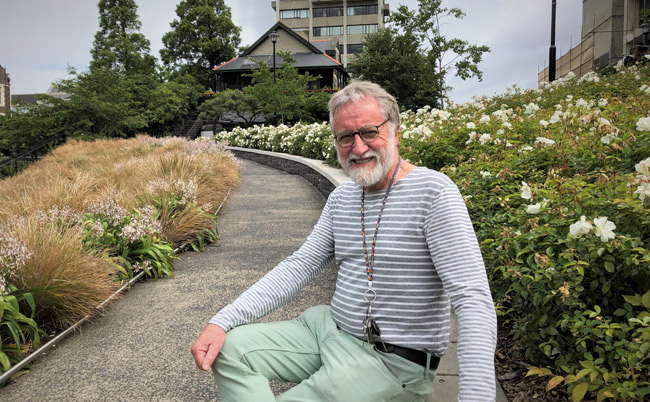Tuesday 18 December 2018 1:39pm

Emeritus Professor John Tagg led a Microbiology project in the inaugural 1990 Hands-On Science event and has been involved with the programme ever since.
During the week of 13 to 18 January, 388 teenagers will arrive in the city for Hands-On Otago (Whai Wheako i Ōtākou), an immersive experience into life and study options as a future student at Otago.
Next year will mark the 30th anniversary of the programme, which has grown significantly from its first year when 138 students attended the inaugural Hands-On Science (Pūtaiao ā-ringa) event.
"The students still have the same enthusiastic energy and are sponges for the week which is invigorating."
In a few weeks, students from 165 schools across the country will experience one of the 35 projects on offer across a wide range of disciplines taught at the University.
Based on their personal interests, each student has a tailored programme for the week, also including a selection of “snacks” ranging from medieval calligraphy to taiko drumming.
These additional activities involve other organisations such as Otago Museum, Beverly-Begg Observatory, and Orokonui Ecosanctuary that will showcase the city and local environment.
The intensive five-day programme also includes social activities and a presentation by Hands-On Otago and University alumnus Matt Carter, maritime archaeologist and a presenter of the television series Coast New Zealand.
Emeritus Professor John Tagg led a Microbiology project in the inaugural 1990 event, and has been on the organising committee ever since.
At that time he also had four sons at a local high school who were considering options for tertiary study. Each boy attended the programme and subsequently each went on to study at Otago.
Professor Tagg says the programme has come a long way from those early years when the most challenging decision seemed to be the location of the annual BBQ. But he also says the central essence of the programme still remains.
“The students still have the same enthusiastic energy and are sponges for the week which is invigorating. They seem to be getting smarter and smarter, are always forgiving, and always positive and grateful for the experience.”
“I still like to attend as I feel I have good things to pass on about life and work, and share the importance of having a dream.”
"For the last 30 years Hands-On Otago has brought together enthusiastic young people many of whom will become students and Otago’s future. Next year’s celebrations will both reflect on our past but also look to the future."
Thousands of teenagers have experienced Hands-On Otago over the 30 years, including the current Prime Minister of New Zealand, the Right Honourable Jacinda Ardern.
Dee Roben, Hands-On Otago coordinator, says organising the week involves a huge amount of work, but the enthusiasm and vibrancy the students bring with them during the week makes it all worthwhile.
“Often I see them forming great friendships that then carry on when they decide to come and study at Otago the following year,” she says.
About 40 per cent of Hands-On participants later become students at Otago University and almost a third of those attending the January event will be Māori and Pacifica.
Hands-On Otago is also a fitting start to the University’s 150th celebrations says Deputy Vice-Chancellor (External Engagement) Professor Helen Nicholson.
“For the last 30 years Hands-On Otago has brought together enthusiastic young people many of whom will become students and Otago’s future. Next year’s celebrations will both reflect on our past but also look to the future.”
